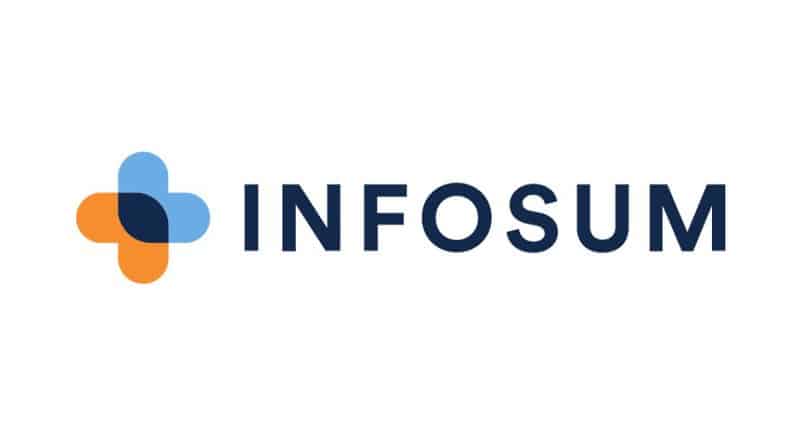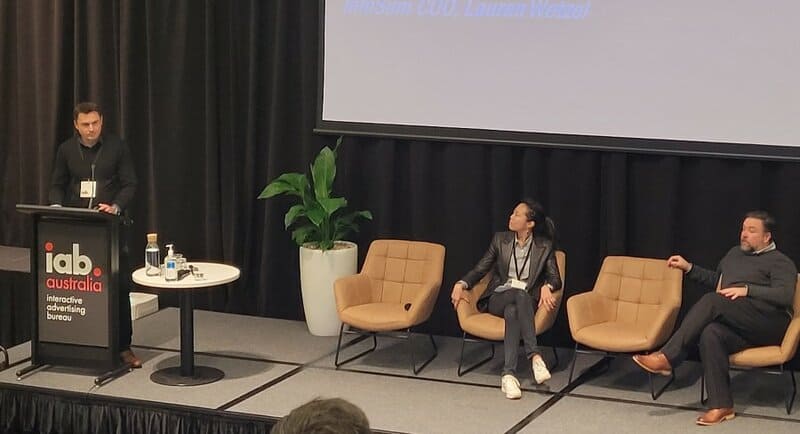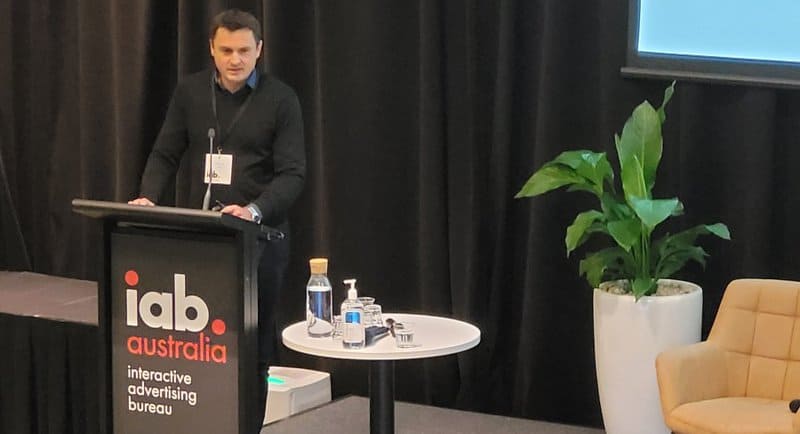The Interactive Advertising Bureau (IAB) held its Data & Privacy Summit last month.
The data council’s dedicated 1PD (1st party data) handbook was launched, and discussions were held on best practices of first-party data collection, management and usage, privacy in Australia and relevant lessons from other markets.
At the summit, Richard Knott from InfoSum spoke to Mediaweek about the company’s work in the data privacy space, data clean rooms, and the cookieless future ahead.
InfoSum and data clean rooms
During his talk, Knott said that a data clean is “a private, secure and governed environment for two or more parties to bring data together for analysis, matching, planning, activating and measurement.”
The GM explained that parties like brands and companies want to operate in a protected and trustworthy environment on one side. On the other side are consumers who have a growing understanding of privacy and their digital identity and ask questions about their data and its use.
“The secret of first-party data sharing is that there’s not a lot of it going on, because companies don’t trust each other. It doesn’t matter how reputable you are as a company, the risk of what could possibly go wrong versus the potential rewards is too great,” he said.
“What clean rooms are trying to do is create an ability for those two demands (of a protected environment and privacy) to come together still and to be able to collaborate,” he said.

Knott told Mediaweek that data clean rooms are a new space that needs to work in a privacy-compliant manner that is secure and allows for the ability to collaborate.
The GM noted that different data clean rooms vary in their offering. Data clean rooms in Europe prioritise privacy, while the US is slightly less rigorous.
“InfoSum has been around for five years and was born out of GDPR (European Union’s General Data Protection Regulation). GDPR is quite strict, and there are certain specific things you can and can’t do,” he said.
Such factors include the non-movement of data. Knott explained that moving data from one place to another without consent is an area of concern for consumers or privacy advocates.
Knot said that because of data breaches in the past, like the infamous Sony PlayStation breach in 2011, “companies are hesitant about giving that data up to somebody else because the outcomes can be quite bad. So, InfoSum is built to service those two core needs of the market,” he added.
The cookieless future, industry preparedness and considerations marketers should be aware of
With the cookieless future upon the industry, Knott said that with the current lack of regulation, the Australian market is ready to adopt the changes.
“There is always the stop-gap solution of contextual, which can always fill the hole. Between what first-party data identifiers there are, combined with zero party or behavioural type solutions, combined with contextual, I think the industry is not going to hit a wall the day these cookies are cut-off,” he said.
But Knott noted that when combined with privacy, Australia’s situation is further behind where it needs to be, compared to the UK, EU and US. “Whereas in the UK, 40% of Boots’ campaigns are already working through a data cleaning on first-party data. So, there’s a bit of disparity,” he said.

Knott speaking alongside Yun Yip, GM of Foxcatcher and Jonas Jaanimagi, Technology Lead of IAB Australia
Aside from the upcoming “cookie-pocalypse”, Knott said that markets should be aware of standard considerations that must be met, such as privacy legislation and consent.
The GM also noted that creating a first-party data matching framework is another consideration as “companies don’t trust each other”. He said creating one will “enable that exchange and collaboration to happen.”
Knott noted that the biggest takeaway from the summit was that there is a broad understanding of the challenges in the industry across publishers, vendors, agencies, brands and publishers.
The GM said that while there is awareness of the challenges ahead, “no one really knows what’s going to happen.”
“You can have your ideas, your thoughts and processes, but until we get more clarity on the actual regulations that are going to come, then this is about as ready as the industry can be,” he said.
Infosum in the industry
Knott said that InfoSum is in an exciting place in the industry. “It is this decentralised way of keeping data where it remains and querying that data, rather than moving data sets in place and mingling them together.
“That whole process is a bit of a mind bend for the industry. I think once people understand that and the benefits, then that will be very exciting for this market,” he added.
